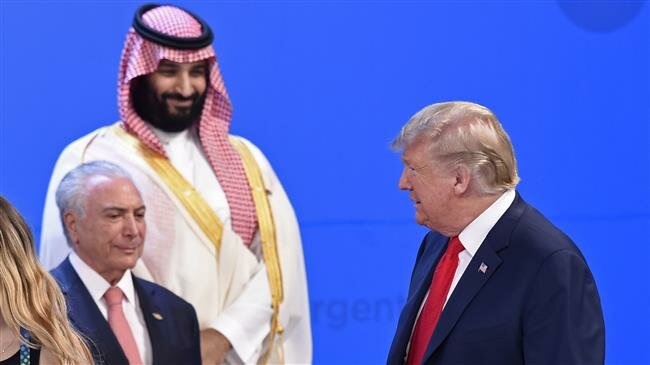A bipartisan group of American lawmakers have raised concerns about Washington’s nuclear dealings with Saudi Arabia despite Crown Prince Mohammed bin Salman’s “deeply troubling actions” and his not-so-secret penchant for acquiring nuclear weapons.
In a letter drafted to US Energy Secretary Rick Perry on Tuesday, Senators Robert Menendez, the senior Democrat on the Senate Foreign Relations Committee, and Republican committee member Marco Rubio questioned the recent approvals for American companies to share nuclear energy information with Saudi Arabia.
The senators specifically pointed to Riyadh’s insistence on forgoing Washington’s so-called 123 agreements, a set of nonproliferation standards required by Section 123 of the US Atomic Energy Act of 1954.
The 123 agreement, often referred to as Washington’s “gold standard” for foreign civil nuclear cooperation, prevents the foreign entity from enriching uranium or reprocessing plutonium made in reactors – two routes to making nuclear weapons.
“As has been reported, Saudi Arabia has repeatedly asked during nuclear cooperation negotiations that no limitations in a 123 agreement be placed on its ability to enrich uranium and reprocess its spent nuclear fuel,” the senators write.
US approves secret sale of nuclear tech to Saudi Arabia
In its never ending quest for more money, the Trump administration resumed the talks and is reportedly considering a deal that would allow Riyadh to enrich and reprocess uranium and pave the way for American companies to build nuclear reactors in the kingdom.
Financially, the deal is assumed to be lucrative enough to match the money-driven politics of Trump, a businessman-turned-politician who is not afraid of overstepping boundaries for more dollars.
In 2017, Trump flew to Saudi Arabia and secured a $110 billion deal to provide the kingdom with advanced weapons. Last year, he famously said that the deal would help America keep “a million jobs.”
Rubio and Menendez warned in their letter that it was not a good idea to provide Saudis with nuclear technology or know-how amid Congress’ attempts to reevaluate ties with the kingdom in the wake of its “many deeply troubling actions.”
“The Kingdom has engaged in many deeply troubling actions and statements that have provoked alarm in Congress and led lawmakers to begin the process of reevaluating the US-Saudi relationship and our long-term stability and interests in the region,” read the letter.
“We therefore believe the United States should not be providing nuclear technology or information to them at this time,” it added.
The senators also raised questions about the process that led to Washington’s decision to push ahead with nuclear talks despite many tell-tale signs that provided a glimpse into Riyadh’s real intentions.
“What are the nonproliferation risks associated with these authorizations? What negotiations has the department engaged in with Saudi Arabia? How did these negotiations lead to the development of the authorizations? What was the interagency process behind the authorizations? How were the approvals coordinated?” Rubio and Menendez asked Perry.
PRESS T.V
R.S

